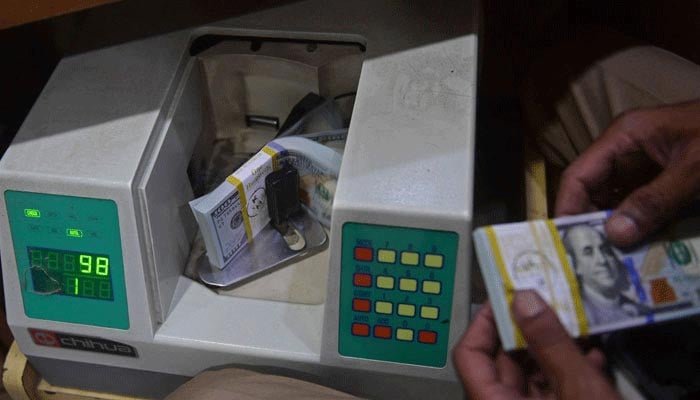
- Data shows 5% decrease on a month-on-month basis.
- Remittances attributed to stable exchange rate, inflows.
- Remittances from Saudi Arabia increased by 56%: data.
KARACHI: Remittances sent home by overseas Pakistanis were recorded at $3 billion, up by 48% in July as compared to the same period last year, data released by State Bank of Pakistan (SBP) said Friday.
According to The News, the data, however, showed a 5% decrease in remittances on a month-on-month basis.
The consistent $3 billion monthly remittances are attributed to a stable exchange rate, resulting from a reduction in the current account deficit, improved foreign inflows, a narrowing gap between open and interbank rates, and administrative actions such as cracking down on illegal dollar trade, foreign currency hoarding, and hawala/hundi operators.
“Remittances have maintained their upward trend post-Eid, signalling positive prospects for the economy and supporting currency stabilisation,” said Awais Ashraf, the director research at AKD Securities Limited.
“This increase is largely due to the movement of worker remittances into formal channels, spurred by the reduced rate difference between exchange companies and the interbank market,” Ashraf added.
SBP data shows that remittances from Saudi Arabia — Pakistan’s largest source of these funds — increased by 56% to $761 million in July. Remittances from Pakistani workers in the United Arab Emirates reached $611 million in July, marking a significant 94% surge, compared with last year.
Furthermore, remittances from the United Kingdom to Pakistan totalled $443 million in July, reflecting a 45% increase from a year earlier.
The Pakistani diaspora in the United States also sent home $300 million in July, representing a 24 per cent rise from July 2023.
Foreign remittances are a significant source of financing for Pakistan’s external account, contributing to economic growth and raising the disposable incomes of households that rely on them for subsistence.
“The higher remittance inflows have also improved the chances of a current account surplus in July, despite anticipating a slightly higher trade and services deficit from PBS [Pakistan Bureau of Statistics] figures and considering payments related to interest and profit repatriation,” Ashraf said.
The current account posted surpluses for three consecutive months but recorded deficits in May and June due to higher dividend and profit payments and a seasonal increase in imports. These factors outweighed a significant rise in exports and workers’ remittances.
The deficit widened by 33% to $329 million in June. Throughout FY24, Pakistan posted a current account deficit of $681 million, equivalent to 0.2% of the gross domestic product.
Pakistan relies on remittances to maintain its foreign exchange reserves, which amounted to $9.15 billion as of August 2. The foreign loan repayment crisis is now over, according to SBP Governor Jameel Ahmad, who made this assurance in a statement before the National Assembly Standing Committee on Finance.
He noted that despite Pakistan’s foreign reserves doubling over the past year, they remain below the minimum threshold, equivalent to only 1.6 months’ worth of imports.
In FY25, Pakistan needs to repay $26.2 billion in external repayments, including $22 billion in principal and $4 billion in interest. It’s anticipated that $16 billion will be rolled over. In July, $1.1 billion has already been repaid, and the remainder of the fiscal year will see $9 billion repaid.
Finance Minister Muhammad Aurangzeb said that Pakistan has secured assurances from China, Saudi Arabia, and the UAE to roll over debt for a year. This is positive news for the country as it awaits final approval for its new $7 billion loan programme with the International Monetary Fund.





